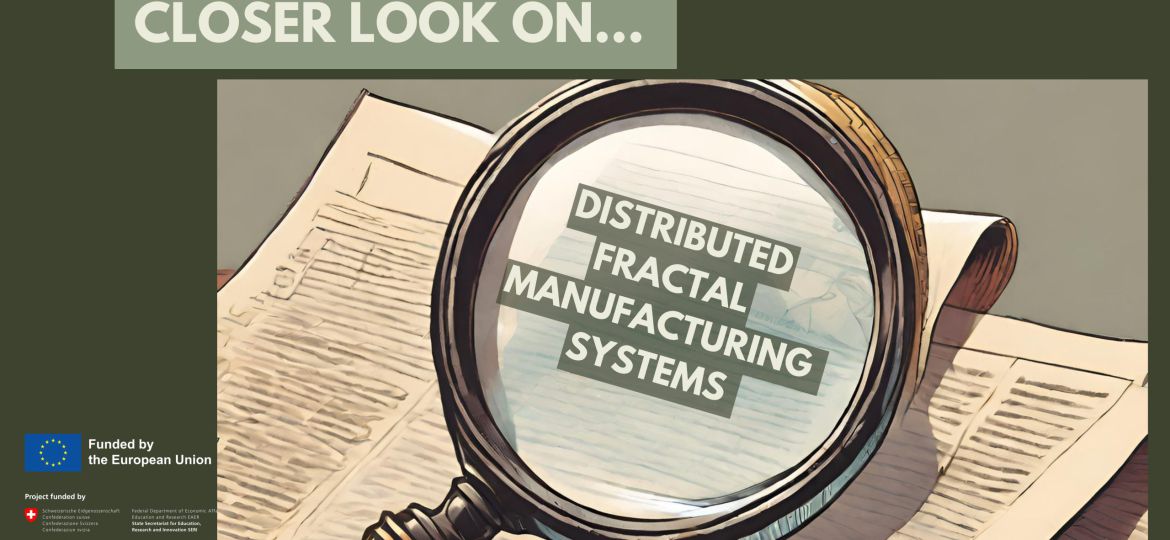In the vast landscape of manufacturing, the hereby-proposed concept of Distributed Fractal Manufacturing Systems (DFMS) will become a pivotal cornerstone in shifting this traditional industry into a MARS – Manufacturing Architecture for Resilience and Sustainability. This article is the first one of the “Closer look on…” series and delves into the intricate web of DFMS, shining a light on manufacturing process modelling and hardware platform setup to validate the DFMS concept through the prism of four distinct manufacturing partners strategically located across Europe: ENSAM in France, Laboratory for Machine Tools and Production Engineer (WZL) from RWTH in Germany, inspire AG in Switzerland, and Manufacturing Technology Lab (MTL) of NTUA in Greece.
Before moving forward to the essential part of this article, it is important to give a short definition of the Distributed Manufacturing Systems (DMS) that are crucial for the project:
Distributed Manufacturing Systems (DMS) are categorized as a type of manufacturing system that places emphasis on internal manufacturing control. They are identified by shared attributes such as autonomy, flexibility, adaptability, agility, and decentralization (Sousa et al. 2000). Illustrative models of such organizational structures within DMS include Holonic (Valckenaers et al. 1994), Bionic (Ueda 1993), and Fractal (Warnecke 1993) Manufacturing Systems.
Proving the Concept
Within MARS, the validation and substantiation of the concept of DFMS is one of the primary objectives. As the fundamental building block of the entire project, DFMS requires empirical validation to pave the way for its successful integration into modern manufacturing practices. Our manufacturing partners offer themselves as the vanguard, demonstrating the feasibility, reliability, and effectiveness of DFMS in real-world scenarios.
Databases
The manufacturing cells used within MARS are poised to accomplish a dual mission. Not only will they orchestrate the creation of two invaluable databases essential for the training of cutting-edge AI models, but they will also validate the principles of DFMS.
The first of these databases, known as the “homogeneous” database (HomD), encapsulates a symphony of variables of a similar ilk. This harmonious assembly stems from the execution of identical manufacturing sequences across all four cells. The data gathered is meticulously unified, leveraging uniform sensor technology to capture a holistic view of the manufacturing process.
In stark contrast, the second database – the “heterogeneous” database (HetD) – arises from the execution of diverse manufacturing sequences. These sequences faithfully mirror the intricate realities of real-world production scenarios, echoing the diversity that characterizes modern manufacturing landscapes.
Why DFMS Matters
The significance of DFMS extends beyond the boundaries of traditional manufacturing systems. Its integration has the potential to revolutionise various industries, unlocking new avenues of creativity and efficiency. With DFMS, the manufacturing process becomes more adaptable to changing demands, agile in responding to market shifts, and decentralised for improved decision-making.
Envisioning the Future
As MARS embarks on its journey to reshape manufacturing, the successful realisation of DFMS will set the tone for the project’s entire trajectory. Beyond the confines of this project, DFMS paves the way for a future where manufacturing is not just a process, but a dynamic and self-evolving system.
